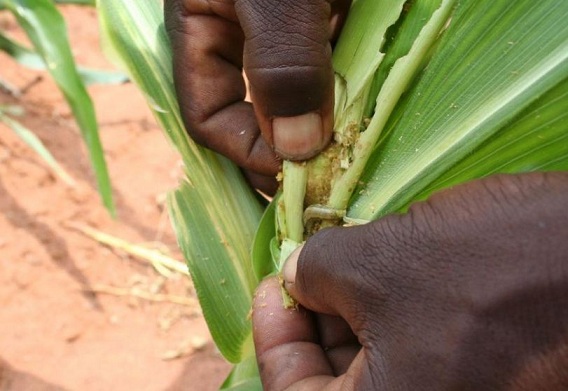
Kenya becomes latest African country to be hit by armyworm invasion

Kenya is investigating reports that crop-eating caterpillars known as armyworms have invaded maize fields in the country’s western region of Trans-Nzoia.
Neighbouring Uganda last month confirmed that the pests had attacked crops in about 20 districts. The reports heightened concerns that the outbreak could spread into Kenya.
Armyworm outbreaks have also been reported in Zambia, Zimbabwe, Malawi and South Africa.
The armyworm is known as the “fall armyworm” because it migrates in autumn, or fall. It’s native to North and South America and can devastate maize, a staple crop crucial to food security in large parts of Africa.
Kenya’s invasion comes at a time when the country is suffering from a drought that has left about 2.7 million people in need of food aid and driven up inflation to a near-five year high. The armyworms have been reported in over 700 hectares of farmland in Trans-Nzoia.
Emergency campaigns are being held to educate farmers on how to identify the pest. Scientists tracking the crop-destroying caterpillar said that it was spreading rapidly across mainland Africa and could reach tropical Asia and the Mediterranean in the next few years, threatening agricultural trade.
To tackle the threat of the worms, the Kenyan government has taken various measures including strengthening national and county capacity in surveillance, diagnostic skills and management of fall army worm by training public private extension service providers, seed inspectors, agrochemical dealers, spraying teams, researchers, farmers and the general public is critical to fast track adoption of strategies to mitigate against the threat of this new migratory pest.






